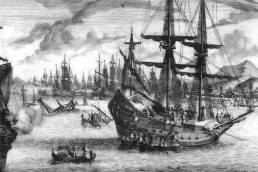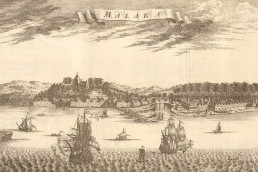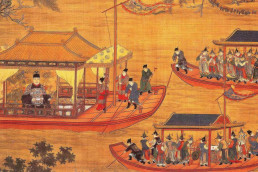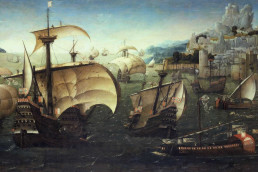One Man's Quest to Connect East and West
The Age of Exploration, a time marked by adventurous journeys and cultural contacts, spawned a cast of fascinating people. Among them is Tomé Pires, a Portuguese adventurer whose life went beyond the conventional explorer’s story. Pires was not a daring commander venturing into unknown territory; he was a savvy pharmacist, a diligent administrator, and, finally, a pioneering diplomat who served as the first official European ambassador to China under the Ming Dynasty.
Pires was born about 1468, and his early life revolved around medicinal mixtures and salves. As an apothecary, his competence was in the meticulous preparation and delivery of remedies, a skill set that would prove remarkably adaptable to the obstacles that faced him. The winds of change swept Pires eastward in 1510, spurred by the Portuguese crown’s increasing colonial ambitions. He arrived in India not as a conquistador seeking booty, but as a “factor of drugs” – a dealer trading in Asia’s exotic spices and other riches. His strong eye for business and excellent record-keeping pleased his superiors, landing him a prominent post as chief accountant for a Portuguese trade corporation in Malacca, a major port in modern-day Malaysia.
Pires’ talents, however, went far beyond debits and credits. He had a sharp mind and a strong curiosity for the civilizations he encountered. This, combined with his fluency in Malay, Southeast Asia’s lingua franca at the time, made him an excellent asset to the Portuguese in their attempt to establish a presence in the East. His ability to navigate the nuances of Asian politics and form connections with local officials helped secure commercial deals and build the framework for a long-term Portuguese presence in the region.
But Pires’ objectives went well beyond commercial success. He envisioned a more profound relationship between Europe and the East, one built on mutual understanding and diplomacy rather than business alone. This ambition came to fruition in 1515, when Pires embarked on a diplomatic mission to China. This wasn’t just another business voyage; it was a historic attempt to establish formal diplomatic contacts with the powerful Ming Dynasty, a China cloaked in mystery and legend for Europeans.
Pires’ entrance in China was a historic occurrence. He became the first recognised European ambassador to the Ming court since the mid-14th century. However, the welcome was not without obstacles. The Ming court, used to a tribute system in which foreigners submitted to the emperor’s authority, greeted Pires’ desire for equal footing with scepticism. Despite cultural and political challenges, Pires persevered. He used his knowledge of Asian customs and diplomatic protocol to carefully pick gifts and methodically prepare for his meeting with the emperor.
Historians continue to argue the exact outcome of Pires’ embassy. According to some stories, he had some success, securing a temporary trading post at Canton (modern-day Guangzhou) before becoming entangled in a complex web of court politics and ultimately imprisoned. Others suggest his voyage was a complete failure, resulting in his imprisonment and death in China around 1524.
Regardless of the facts, Tomé Pires’ legacy is indisputable. He initiated an important interaction between Europe and China, promoting a better understanding of each other’s cultures and political environments. His detailed records and observations, gathered in a treatise named “Suma Oriental” (Eastern Sum), are a monument to his dedication and a useful resource for modern historians. “Suma Oriental” provides a rich of knowledge on Southeast Asia during Pires’ time, including commercial routes, political systems, social norms, and religious practices. It sheds light on the region’s thriving port cities, the complicated political landscapes of kingdoms like as Malacca and Majapahit, and its cultural richness.
Pires’ legacy goes beyond his diplomatic achievements and written memoirs. He is a fascinating figure who defied stereotypes as an explorer. He wasn’t a daring conquistador out for money and glory, nor was he a seasoned sailor exploring unfamiliar waters. Pires was a diplomat who relied on knowledge, cultural sensitivity, and a genuine desire to understand rather than swords and cannons.
Pires’ story reminds us that the true achievements of discovery are frequently found not in physical conquests, but in bridging cultural boundaries and laying the groundwork for a more interconnected world. His stay in Asia was important more than just establishing commercial channels and forming political allies; it was also about bridging the massive knowledge and understanding gap that existed between Europe and the East. Pires’ writings and diplomatic activities were essential in deconstructing the veil of mystery that surrounded China for Europeans.




